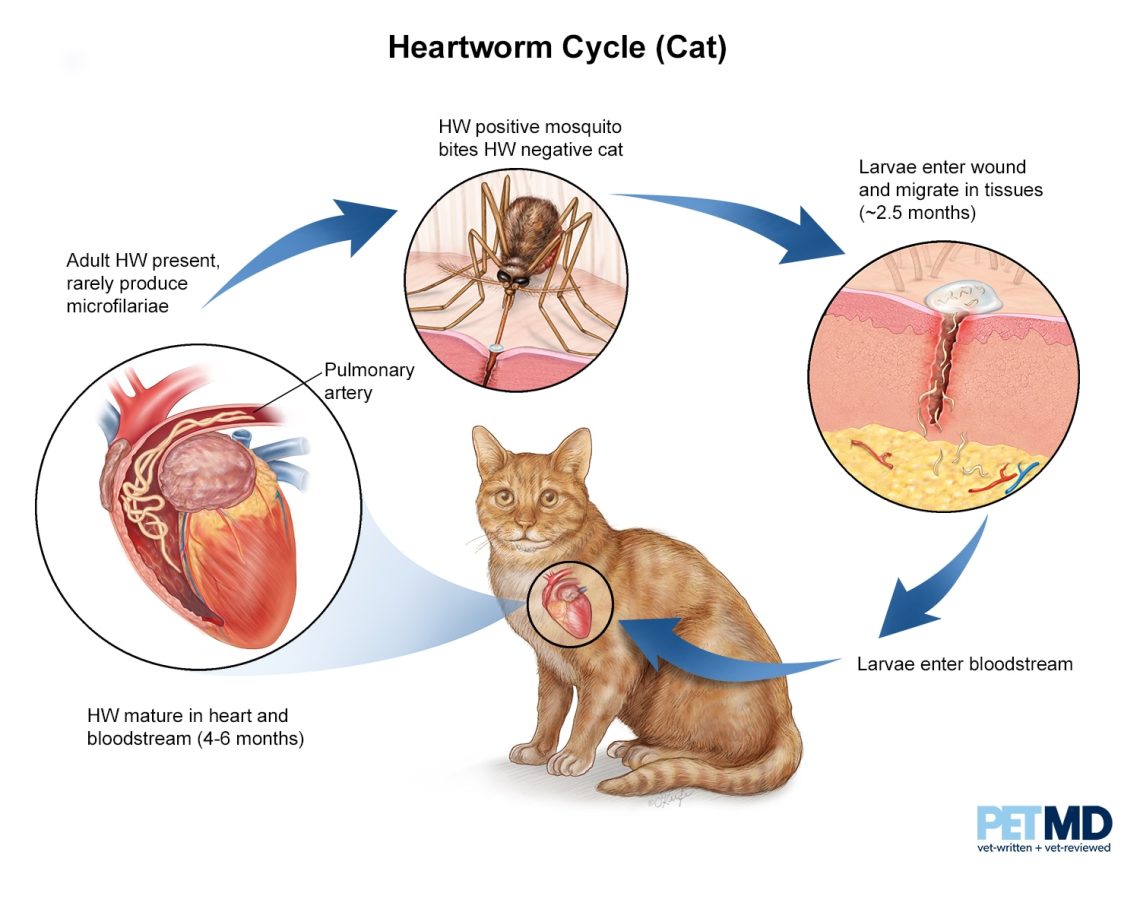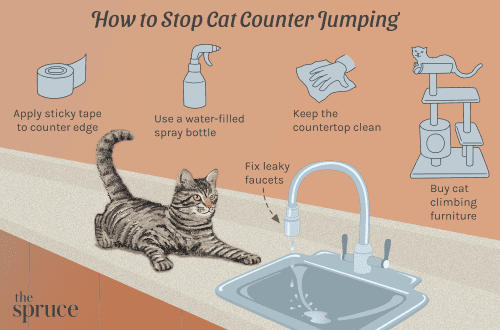
Heartworm in a cat: symptoms and treatment
Heartworms, or helminths, in cats is a serious and life-threatening disease that causes infection of an animal with the parasite Dirofilaria immitis through the bite of an infected mosquito. Cats that are allowed outside are more at risk of infection, but pet cats can also become infected, as mosquitoes easily enter indoors.
Fortunately, several medications are available to prevent heartworm in cats. Knowing the signs of the disease will help to provide the pet with the necessary assistance in time.
Contents
Heartworm in cats: what is it?
Cats become infected with this parasite when bitten by a mosquito that carries the larvae of this helminth. The larvae then mature and migrate from the bloodstream to their final habitat, the cat’s heart and lungs. The death of these heartworms results in a severe inflammatory reaction that can be fatal to the cat.
Signs of heartworm in cats may appear before the parasite reaches full maturity. This can provoke an inflammatory reaction in the lungs caused by the larvae. In most cases of worms in the heart of a cat, no more than two or three adults are present in the body. But because a cat’s heart and blood vessels are smaller than a dog’s, these worms do more damage.
Despite their name, heart parasites in cats do not primarily affect the heart, but the lungs. So a new term has been coined to describe heartworm in cats: Heartworm Associated Respiratory Disease (HARD), according to the American Veterinarian.
Some cats are able to get rid of the heartworm due to the body’s immune response. But even in this case, the symptoms of the disease may appear. In most cats bitten by an infected mosquito, the maturation and migration of heartworm larvae results in several overt signs.

Heartworm in cats: signs, symptoms
The most common symptoms of heartworm in cats are similar to those of feline asthma and other chronic respiratory diseases. These may include intermittent cough, rapid and labored breathing.
Signs of dirofilariasis in cats can also be subtle and general. For example, include mild lethargy, occasional vomiting, weight loss, and decreased appetite.
How is heartworm diagnosed in cats?
A veterinarian diagnoses heartworm in cats by history, physical examination, chest x-ray, and complete blood count. He also needs to take special blood tests to check for the presence of antibodies to heartworms and antigens or proteins from adult heartworms.
In addition, an echocardiogram, that is, an ultrasound of the heart, can be performed. This will help check for the presence of adult worms in the heart and associated blood vessels. According to the Cummings School of Veterinary Medicine at Tufts University, this non-invasive form of imaging can also check for other heart problems, such as valve abnormalities, tumors, dilation or thickening of the muscles, for example.
To confirm the diagnosis of heartworm, a cat may need to undergo various tests.
Is there a cure for heartworm?
There are currently no effective treatments for cats diagnosed with heartworm. At the time of diagnosis, a veterinarian and possibly a veterinary cardiologist can advise on the best course of observation as well as medications to help keep the pet healthy.
If similar signs of the disease appear, spontaneous clearance of the parasite can be monitored with a repeat blood test. If there are signs of disease in the cat’s lungs, observation with a chest x-ray and echocardiogram is prescribed, treatment with steroid drugs to reduce inflammation caused by worms.
Cats with severe symptoms may require additional, more aggressive supportive care, including oxygen, heart and lung medications, drips, and antibiotics. In some cases, if there are a large number of heartworms in the heart and associated blood vessels, they can be surgically removed.
Tips for Preventing Heartworms in Cats
The good news is that heartworm infections are very easy to prevent. There are many safe, effective, and easy-to-administer medications that can protect your cat from this parasite. These medications are relatively cheap and available in oral or topical monthly form.
All cats, whether they live outdoors or indoors, are encouraged to take heartworm medication year-round, especially if they live in regions where the disease is most common or in tropical climates where mosquitoes live regardless of the season. . Consult your veterinarian to determine which heartworm medication is best for your cat.
While keeping your cat indoors is usually the most effective way to protect your cat from mosquitoes, parasites, and other harmful elements, this alone may not be enough. Because of the potentially serious impact this disease has on your cat’s health, you should arm yourself with heartworm preventive medication and watch for any warning signs. A proactive approach is sure to help keep your furry friend safe from heartworms.
See also:
Helminthiasis in cats: symptoms and treatment
Everything you need to know about cat fleas
Fleas and worms
Giardia in cats: symptoms and treatment





